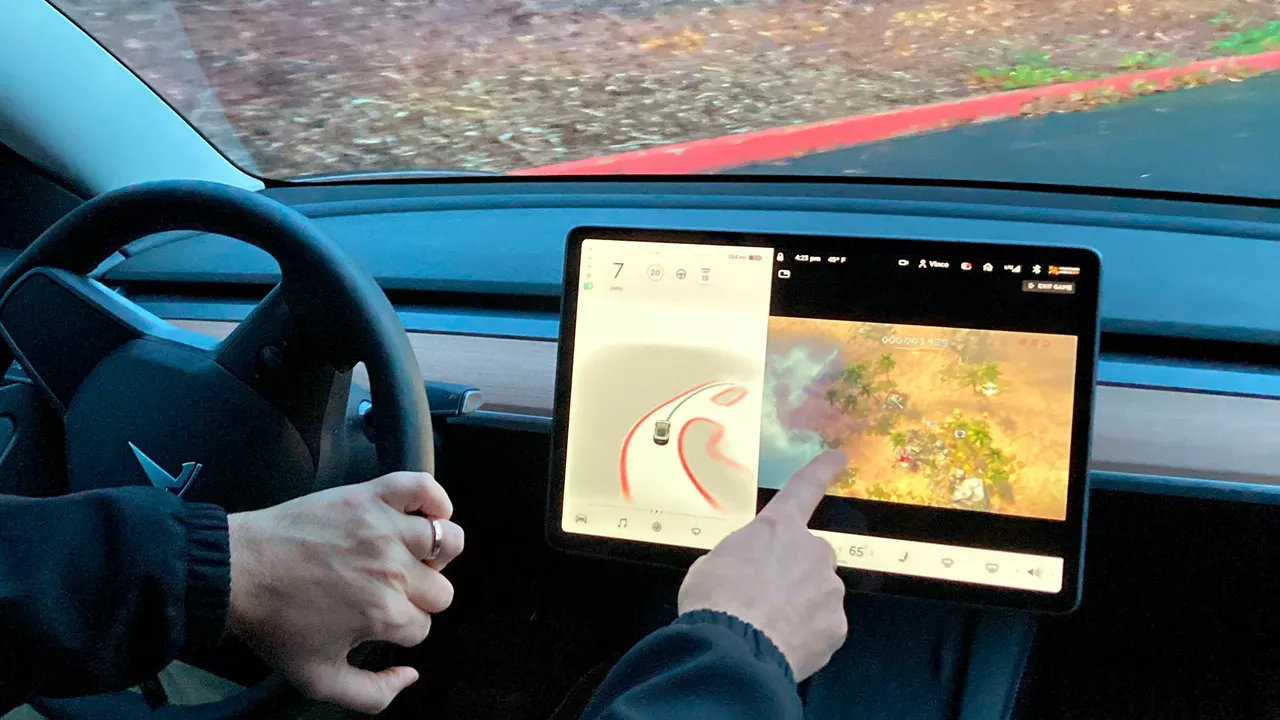The Backdrop of the Issue
Let's start by understanding the context of the issue at hand. In recent times, Tesla, the company that is synonymous with electric vehicles and known for its innovative features, has been under scrutiny. The controversy revolves around the company's decision to allow drivers to play video games in their cars. Yes, you heard it right! The company's software update now allows drivers to play video games while their car is in motion, which has raised eyebrows among safety regulators.
The Investigation into Tesla
The National Highway Traffic Safety Administration (NHTSA), an agency of the U.S. federal government, is reportedly investigating Tesla for this new feature. The agency is responsible for ensuring the safety of the nation's roadways and is tasked with creating and enforcing vehicle performance standards and regulations. Their aim is to prevent road accidents and protect drivers, so it's no surprise that they're questioning Tesla's decision to allow in-motion gaming.
The Game at the Center of the Controversy
The game that has caused all the fuss is called 'Passenger Play'. As the name suggests, it is meant for passengers rather than drivers, but the problem arises because the game can be played even when the car is moving. This has raised concerns about driver distraction, a major cause of accidents on the road. The game is available on the infotainment screen of Tesla vehicles, and it's easy to see why regulators would be worried about this feature.
Tesla's Perspective on the Matter
Tesla, on its part, has defended the feature, stating that it is intended for use by passengers and not by the driver. The company has insisted that drivers are responsible for remaining attentive and not allowing distractions to interfere with safe driving. However, they are yet to provide a detailed response to the ongoing investigation.
Impact on Tesla's Reputation
The investigation could potentially harm Tesla's reputation which is built on innovation, safety, and technological advancements. Consumers might start questioning the company's commitment to safety, which could impact its sales and market share. It is therefore crucial for Tesla to address this issue promptly and convincingly.
The Public's Reaction
The public's reaction to this issue has been varied. Some Tesla owners have expressed their support for the company, stating that the feature is innovative and fun. Others, however, have voiced their concerns about the potential safety risks involved. The debate has sparked discussions about the balance between technology and safety in vehicles.
Previous Controversies Surrounding Tesla
This is not the first time that Tesla has faced controversy over its features. The company's Autopilot system has also been under scrutiny in the past, with critics arguing that it could encourage drivers to pay less attention to the road. These controversies underscore the fine line that Tesla has to walk between innovation and safety.
What Experts Say
Many experts in the field of automotive safety have expressed their concerns about Tesla's decision. They argue that allowing video games to be played while the car is in motion is a clear distraction for the driver, regardless of who is playing the game. They believe that this feature could increase the risk of accidents, which is contrary to the goal of improving road safety.
Possible Outcomes of the Investigation
The investigation could have several outcomes. The NHTSA could decide that the feature poses a safety risk and order Tesla to disable it. Alternatively, they could ask Tesla to modify the feature to ensure that it cannot be used when the car is in motion. Either way, the investigation is likely to have implications for Tesla and its approach to in-car entertainment.
Final Thoughts
The investigation into Tesla's video game feature is a reminder of the challenges that car manufacturers face in the era of connected and autonomous vehicles. As cars become more advanced and packed with features, it is essential to ensure that these do not compromise safety. This issue is a wake-up call for not just Tesla, but all car manufacturers to balance innovation with safety.
